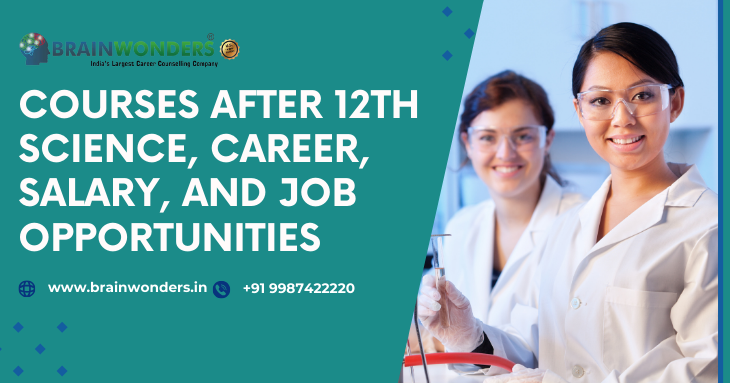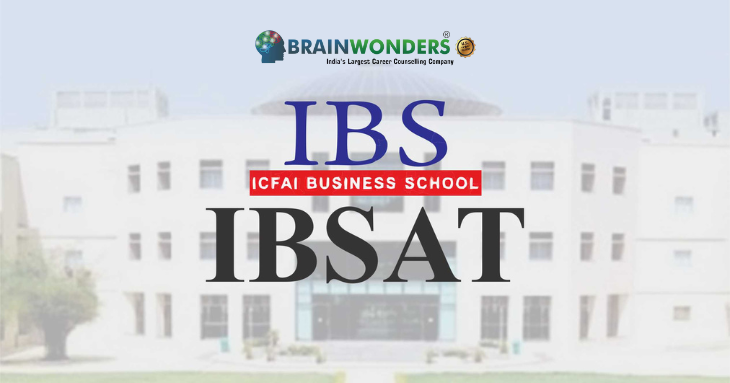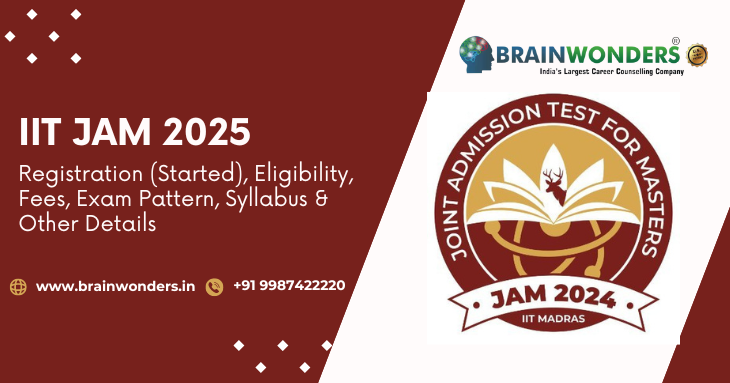

Take Brainwonders Career Test and make the right decisions for your college and course ahead
Get your U.S. Patented DMIT analysis and lead the way to a happy and successful career
Blog
04 July,2024 | By Brainwonders

Are you curious about the meaning of "PG" in education? In this blog, we'll delve into the term "PG" and provide an overview of India's diverse landscape of postgraduate programs. We'll also explore the options and advantages these programs offer, whether you're a seasoned professional aiming to enhance your skills and knowledge or a recent graduate contemplating your next academic pursuit.
"PG" stands for "Postgraduate," referring to academic programs undertaken after completing an undergraduate (UG) degree. These programs are tailored to delve deeper into specific subjects or fields, enabling students to acquire advanced knowledge, skills, and expertise in their chosen discipline or domain. The duration of these programs varies depending on the course and institution. In India, postgraduate courses generally span from one to two years. Thorough research is essential to pursue postgraduate studies in any discipline.
India offers a wide array of PG programs. Upon graduating from a recognized university, you become eligible to pursue post-graduation (PG). Explore the different types of PG programs outlined below.
An MBA degree provides advanced knowledge in business and leadership skills. It covers areas such as finance, marketing, human resources, and strategy, preparing graduates for managerial positions across diverse industries. MBA programs offer specializations, including:
| PG Course Name | Master of Business Administration (MBA) |
| Duration | 2 Years |
| Eligibility Criteria | 10th Class Certificate 12th Class Certificate Bachelor’s Degree in any stream with a minimum of 40% |
| Study Stream | Management |
| Admission Criteria | – CAT – MAT – XAT – GMAT – NMAT |
| Career Opportunities | – Management consulting – Financial Analyst – HR Manager – Business Analytics – Marketing Manager – Operations management |
| Top Colleges | – Amity University – Chandigarh University – SRM University – Jain University |
The Doctor of Medicine (MD) is a postgraduate medical degree, typically completed in two years. MDs are allopathic doctors, meaning they use standard medical tools such as X-rays, prescription medications, and surgery to diagnose and treat illnesses. This approach is also known as conventional or mainstream medicine. Physicians with an MD can choose to practice general medicine, family medicine, or primary care.
| PG Course Name | Doctor of Medicine (MD) |
| Duration | 2 Years |
| Eligibility Criteria | Candidates must have received their MBBS from an accredited university with ICMR approval. Additionally, candidates must have finished the required one-year internship. MD admissions depend on the results of entrance examinations. |
| Study Stream | Medicine |
| Admission Criteria |
|
| Career Opportunities |
|
| Top Colleges |
|
MSc programs are two-year postgraduate courses that concentrate on a specific area within the sciences. Pursuing an MSc degree allows you to deepen your understanding in a particular scientific field, such as biology, chemistry, or physics. Throughout the program, you'll conduct research, analyze data, and develop expertise in your chosen discipline. Specializations offered in MSc programs include:
| PG Course Name | Master of Science (M.Sc.) |
| Duration | 2 Years |
| Eligibility Criteria |
|
| Study Stream | Science |
| Admission Criteria |
|
| Career Opportunities |
|
| Top Colleges |
|
A Postgraduate Diploma (PGD) is an advanced academic qualification pursued after completing a university degree, enhancing your original qualification and awarding a graduate diploma. PGD programs vary and can include certification courses or management courses. The two-year Post Graduate Diploma in Management (PGDM) program equips aspiring managers with essential hard and soft skills, preparing them to become industry-ready professionals and meet the demands of the business world.
| PG Course Name | Post Graduate Diploma (PGD) |
| Duration | 1 – 2 Years (course & college dependent) |
| Eligibility Criteria | Candidates with graduation from a UGC-recognized university |
| Study Stream | Certification/Management |
| Admission Criteria |
|
| Career Opportunities |
|
| Top Colleges |
|
The Master of Arts (M.A.) program offers advanced study in humanities and social sciences disciplines, such as history, literature, psychology, and sociology. This 2-year program, typically pursued after earning a Bachelor of Arts (B.A.), enhances your critical thinking, research, and communication skills in your chosen field. Some M.A. specializations include:
| PG Course Name | Master of Arts (M.A.) |
| Duration | 2 Years |
| Eligibility Criteria | Candidates with a bachelor’s degree (preferably arts (B.A.)) or its equivalent (10+2+3 ) |
| Study Stream | Humanities |
| Admission Criteria |
|
| Career Opportunities |
|
| Top Colleges |
|
The Master of Computer Applications (MCA) degree program builds on your foundation in computer science, providing advanced programming skills, software development expertise, and knowledge of various computer applications. This program prepares you for careers in IT and is typically pursued after completing a Bachelor of Computer Applications (BCA) degree. Some MCA specializations include:
| PG Course Name | Master of Computer Applications (MCA) |
| Duration | 2 Years |
| Eligibility Criteria | Candidates with BCA /B.Sc./ BIT/ B.E/ B. Tech, with Mathematics or Statistics as one of the subjects from a recognized institution with a course duration of a minimum of 3 years. |
| Study Stream | Computer Science |
| Admission Criteria | Online Application |
| Career Opportunities |
|
| Top Colleges |
|
The Master of Commerce (M.Com) is a specialized degree designed for students with a background in commerce from their 12th standard and undergraduate studies. This program delves into business and commerce subjects, including accounting, finance, economics, and business management, preparing you for advanced careers in these areas. Some M.Com specializations include:
| PG Course Name | Master of Commerce (M.Com) |
| Duration | 3 Years |
| Eligibility Criteria | 50% aggregate in Bachelors or BCom or BCom (H) from a recognised university or college |
| Study Stream | Commerce |
| Admission Criteria | Online Application |
| Career Opportunities |
|
| Top Colleges |
|
The Master of Laws (LLM) is a specialized degree designed for law graduates who wish to gain expertise in specific legal areas, such as tax law, international law, or intellectual property law. An LLM allows you to specialize and advance your legal career. Typically, an LLM is pursued after completing an LLB degree, though some colleges also offer integrated LLB-LLM programs.
| PG Course Name | Master of Laws (LLM) |
| Duration | 2 Years |
| Eligibility Criteria | Candidates must have completed an LLB or a five-year integrated LLB from a recognised university. |
| Study Stream | Law |
| Admission Criteria |
|
| Career Opportunities |
|
| Top Colleges |
|
The Master of Education (MEd) is a two-year postgraduate program designed to help educators enhance their teaching skills, pedagogy, and subject matter expertise. Additionally, an MEd can prepare educators for leadership roles, such as higher education administrators, policymakers, or school principals.
| PG Course Name | Master of Education (MEd) |
| Duration | 2 Years |
| Eligibility Criteria | Candidates who have obtained a B.Ed. degree are eligible for admission |
| Study Stream | Education |
| Admission Criteria |
|
| Career Opportunities |
|
| Top Colleges |
|
Expand your engineering knowledge with a two-year M.Tech program. If you have a B.Tech degree, this advanced program can open up numerous technology-related career opportunities. Some of the available M.Tech specializations include:
| PG Course Name | Master of Technology (M.Tech) |
| Duration | 2 Years |
| Eligibility Criteria |
|
| Study Stream | Engineering |
| Admission Criteria |
|
| Career Opportunities |
|
| Top Colleges |
|
The Master of Pharmacy (MPharm) is a two-year postgraduate (PG) program that focuses on the study of pharmaceuticals and medications, which form the foundation of pharmaceutical sciences. This course enhances students' theoretical, technical, and practical knowledge of pharmacy while fostering an interest in further pharmaceutical research.
| PG Course Name | Master of Pharmacy (MPharm) |
| Duration | 2 Years |
| Eligibility Criteria | Candidates must hold a bachelor’s degree in pharmacy (BPharm) with a minimum percentage of marks ranging from 45% to 60%, depending on the college. |
| Study Stream | Medicine |
| Admission Criteria |
|
| Career Opportunities |
|
| Top Colleges |
|
Follow the steps below to apply for PG programs:
Understanding the wide range of PG programs available can provide valuable insights and opportunities for both personal and professional growth. Admission to PG programs such as MBA, MCA, and LLM typically requires a relevant undergraduate degree. For example, if you have a BA in History, you can pursue an MA in History. Whether you're looking to deepen your expertise in a specific field, broaden your knowledge, or enhance your career prospects, PG programs offer transformative experiences. With dedication and perseverance, these programs can help you achieve your aspirations and succeed in your chosen path.
Q1. What is the full form of PG?
Ans: The full form of PG is postgraduate. PG programs are pursued after completing undergraduate (UG) programs. Some examples of PG courses include MBA, MCA, MA, and LLM.
Q2. What does PG class stand for?
Ans: The term "postgraduate," or "PG," refers to the educational level following an undergraduate degree. This includes master's degrees and similar qualifications. Typically, completion of an undergraduate degree is required for admission to a postgraduate program.
Q3. How many types of PG programs are there?
Ans: There are numerous types of PG programs, such as Master's degrees in Computer Applications, Business Administration, Arts, and Science.
Q4. Which PG program is recommended?
Ans: Some popular PG programs include MBA, MCA, and M.Com. The choice of program depends on individual preferences and career goals.
Q5. Who are considered PG students?
Ans: Anyone enrolled in a postgraduate course, such as a master's, MPhil, or PhD program, is classified as a postgraduate student.
Take Brainwonders Career Test and make the right decisions for your college and course ahead



,_Syllabus,_Pattern,_Old_Question_Papers.png)

